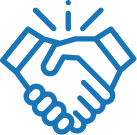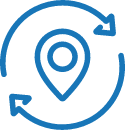Korean Classes with Native Korean Tutors
Our Korean teachers are fully qualified to teach their native tongue. They can train you and, if need be, the rest of your group at a time that is suitable for you, at your home or place of work. Sessions can take place whichever day of the week and whatever time works best, even weekends: whether it be morning, afternoon or evening. If circumstances arise where your home or office is unavailable, these Korean lessons can be held at your trainer’s office. The teacher will recommend a comprehensive course book to guide you through the lessons.

Reviews Of Our Korean Courses

My Korean lessons are going really well. I love the way the teacher is structuring the lessons. She is flexible with the days and times.

We are definitely enjoying our lessons. Goun is an excellent teacher.



















